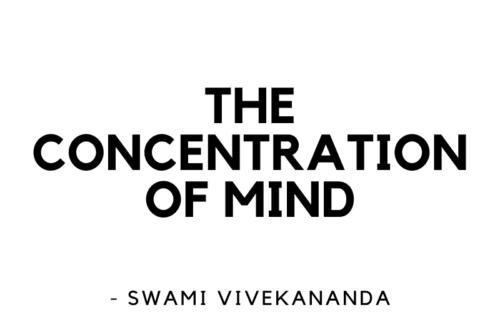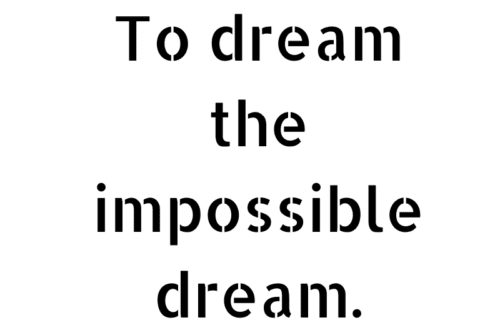
When life hurts, care less about it
Life can be full of challenges and difficult situations that can leave us feeling overwhelmed, stressed, and hopeless. However, the philosophies of Stoicism and Buddhism offer valuable insights and practices for dealing with life’s difficulties in a more effective and empowering way. One key principle is to learn to care less about our pain and detach ourselves from our emotions and desires, focusing instead on what we can control and finding a sense of acceptance and gratitude for the good things in our lives. In this article, we’ll explore how these philosophies can help us navigate life’s ups and downs with greater resilience and peace of mind. When life hurts, care less about it.
When life hurts, care less about it
When life hurts, it can be difficult to know how to cope. Our instinct is often to cling to our pain, to obsess over it, to let it consume us. But what if the key to overcoming our pain is actually to care less about it?
This idea may seem counterintuitive, even callous, but it is a core tenet of several ancient philosophies, including Stoicism and Buddhism. Both of these philosophies encourage practitioners to detach themselves from their emotions and desires, to see the world with clarity and objectivity, and to focus on what truly matters.
At first glance, this may seem like a bleak and nihilistic way to approach life. After all, isn’t caring about things and feeling emotions what makes life worth living? But the truth is that our attachment to our desires and emotions is often what causes us pain and suffering in the first place.
When we cling too tightly to our desires and expectations, we set ourselves up for disappointment and frustration. When we allow our emotions to run wild and dictate our actions, we often make impulsive and regrettable decisions. When we obsess over our pain and suffering, we magnify it and make it even harder to bear.
By learning to care less about our pain and suffering, we can free ourselves from these negative patterns and find a more peaceful and fulfilling way of life. so When life hurts, care less about it.
Stoicism and detachment from emotions
Stoicism is a philosophy that originated in ancient Greece and Rome, and it is perhaps the most well-known philosophy of detachment. At its core, Stoicism teaches that we should focus on what is within our control and let go of what is outside of our control.
This means that we should not get too attached to external things, such as wealth, power, or even our own physical bodies. These things are all subject to the whims of fate and can be taken away from us at any moment. Instead, we should focus on developing virtues such as wisdom, courage, and justice, which are within our control and can never be taken away.
Similarly, Stoicism teaches that we should detach ourselves from our emotions and desires. Our emotions are often irrational and uncontrollable, and they can cloud our judgment and lead us astray. By learning to detach ourselves from our emotions and view the world with objectivity and reason, we can avoid the pitfalls of emotional decision-making and live a more fulfilling life.
Buddhism and detachment from suffering
Buddhism is a philosophy that originated in ancient India, and it shares many similarities with Stoicism. Like Stoicism, Buddhism teaches that attachment to external things leads to suffering, and that we should focus on developing inner qualities such as compassion, wisdom, and equanimity.
One of the central concepts in Buddhism is the idea of impermanence. Everything in the world is constantly changing and fleeting, and our attachment to impermanent things is what causes us suffering. By recognizing the impermanence of all things and learning to let go of our attachment to them, we can find a more peaceful and contented way of life.
Buddhism also teaches the concept of non-self, which is the idea that there is no permanent self or soul that exists independently of the rest of the world. Instead, our sense of self is a temporary and illusory construct that arises from our thoughts and experiences. By detaching ourselves from our sense of self and recognizing our interconnectedness with the rest of the world, we can find a deeper sense of meaning and purpose.
Applying detachment to everyday life
While the ideas of Stoicism and Buddhism may seem abstract and theoretical, they have practical applications in our everyday lives. Here are some ways that we can apply the concept of detachment to our own struggles and challenges:
1. Focus on what you can control
When faced with a difficult situation or challenge, it’s easy to become overwhelmed by all the things that are outside of our control. But by focusing on what we can control, we can avoid feeling powerless and find a sense of agency and purpose.
For example, if you’re dealing with a health issue, you can focus on taking care of your body and following your doctor’s advice, rather than obsessing over the things you can’t control, such as the outcome of medical tests or the opinions of others.
2. Practice mindfulness and meditation
Both Stoicism and Buddhism emphasize the importance of cultivating a calm and clear mind. One way to do this is through mindfulness and meditation, which involve focusing your attention on the present moment and observing your thoughts and emotions without judgment.
Through regular meditation practice, you can learn to detach yourself from your thoughts and emotions and develop a more objective and compassionate perspective on your life and experiences.
3. Cultivate gratitude
When we’re focused on what we don’t have or what’s going wrong in our lives, it’s easy to become mired in negativity and despair. But by cultivating gratitude and focusing on the things we do have, we can find a more positive and hopeful outlook on life.
Make a habit of expressing gratitude for the good things in your life, whether it’s your health, your relationships, your job, or simply the beauty of the natural world around you. By focusing on the positive, you can shift your perspective and find a greater sense of peace and contentment.
4. Practice acceptance
One of the key tenets of both Stoicism and Buddhism is the idea of acceptance. Rather than resisting or fighting against the things that are outside of our control, we can learn to accept them and find a sense of peace with our circumstances.
This doesn’t mean that we should be passive or resigned in the face of adversity. Rather, it means that we should focus on what we can control and accept the things that we can’t. By letting go of our resistance and finding a sense of acceptance, we can reduce our suffering and find a more positive and empowering way of dealing with life’s challenges.
Conclusion
When life hurts, it can be easy to get caught up in our pain and suffering. But by learning to care less about our pain and detach ourselves from our emotions and desires, we can find a more peaceful and fulfilling way of life.
The philosophies of Stoicism and Buddhism offer valuable insights and practices for cultivating detachment and living a more meaningful and purposeful life. By focusing on what we can control, practicing mindfulness and gratitude, and cultivating acceptance, we can overcome our pain and find a sense of peace and contentment.
When life hurts, care less about it
Also read: What to Do When Life Hurts
Also read: Unrealistic Expectations and Constant Hoping Can Lead to Unhappiness.



